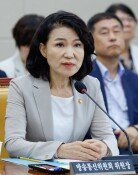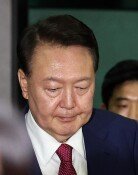Expert Comments

OVERALL EVALUATION
1. Contents
By anyone's standards, President Kim Dae-jung's winning the Nobel Peace Prize last week was big news. A story on that scale presents English Donga.com with several challenges aside from reporting the event. English Donga.com is in an excellent position to provide more detailed background information on President Kim's life and standing in Korean society. Most major English-language media summarized his life and political career in a few sentences. The lack of details reinforced the impression that they were writing about a far-away place that is only relevant when a major story breaks. English Donga.com, by contrast, is rooted in Korea, and can provide a much fuller analysis of the President Kim's career and the meaning of the Nobel Peace Prize to Koreans.
Coverage of the Peace Prize in English Donga.com was somewhat limited compared to Korean Donga.com. The vernacular version looked at the prize from a number of perspectives and included extensive biographical background information on President Kim's life. Though Kim Dae-jung is known overseas, many readers do not know much about his life and would thus find background and biographical information useful. Other readers may be interested in the articles Korean Donga.com ran on how foreign news organizations reported the event and on how foreign reaction to the event was reported in Korea. These articles provide an interesting perspective on how Koreans view themselves in the world.
This is why, as I mentioned in the previous article, a separate category containing international news should be included on the site. The Korean perspective on international news is often quite interesting, and readers can benefit from this perspective. It helps them see their own countries in a new light and helps them become more sensitive to Korean views of the world. In this regard, the translations of the editorials are one of the most useful content areas on English Donga.com. Expanding the contents of the "Opinion" section to include translations of the "shiron" column would add more breadth and depth to the section.
As mentioned in the previous article, coverage of cultural issues should be expanded. The series of "culture columns" (munhwa kallom), for example, is excellent and would be of interest to readers who want to learn more about current intellectual trends in Korea. The column on September 6 by Lee In-hwa, for example, showed how an established author is adapting to the possibilities of hypertext fiction. In any area of contemporary culture, Korea is churning with creativity and experimentation, but few of these activities are making their way into the English language. Instead, what English readers hear about are large cultural festivals and events aimed to "help foreigners understand Korean culture." These are fine, but they do not represent the cutting edge of cultural creativity in Korea. Translations of the "culture columns" would add substantially to the "Culture" category.
Another necessary category is one devoted to developments in IT (information technology) and cyber-culture in Korea. Though cyber-culture could easily fit into the "Culture" category, it fits better in a category that includes information on the Internet and computers. Renaming the "Culture" category "Culture and Arts" would shift the focus of that category to the performing, visual, and literary arts, which would make it easier to place cyber-culture in the same category as the Internet and computer science. An interesting title might be "e-Life" because "IT" refers mainly to applications of technology. Together with art and culture, cyber-culture is one of the most dynamic areas of Korean life that many foreigners want to ?and indeed should ?know more about.
2. Language
Romanization of Korean names is a complex issue because many people use idiosyncratic romanizations that combine elements from several different systems. The romanization of Syngman Rhee, the first president of the Republic of Korea, is an example of an idiosyncratic romanization. Other examples, particularly in the arts, abound. Paik Nam June combines the German romanization of the surname Paek with an English-based romanization of Chun/Jun in the last syllable of the given name. In the case of Syngman Rhee and Paik Nam June, there are no hyphens between the two syllables of the given name, but one is written closed up and the other is written opened up. Common practice is to include a hyphen between the two syllables of the given name, but, as the above cases show, this is not universal.
Attempts to standardize romanization run into trouble when it comes to personal names because people have a right to represent themselves orthographically however they please. For news writers, this causes several problems. The first is the need to check and recheck romanization of names of noted "public persons" so that they conform to common usage. This means writing names like Syngman Rhee and Paik Nam June as such, instead of as Yi Sung-man or Paek Nam-jun according to the McCune-Reischauer system. The other problem is what to do with names of persons whose names do not appear in English frequently. In this case, names should be romanized according to the system used for other proper nouns in English Donga.com, which I hope will become the McCune-Reischauer system. The use of a hyphen between syllables of a given name is questionable, but the practice is so entrenched that it should be continued, except in the case of noted "public persons."
Overall, the quality of English in English Donga.com is acceptable, but I have noticed some problems in the use of the definite and indefinite articles. An example of this is the editorial that appeared on October 16, which contained a reference to "the soaring oil prices." In this case, the definite article is not appropriate, unless the head noun is singular as in the "the soaring price of oil." The following sentence is an example of excessive use of the definite article: "The reform works would inevitably follow social pains, but it would be helpful to obtain the national consensus if President Kim takes the initiative in the reform." In natural English, the sentence would read: "Reform inevitably brings social pain, but President Kim should take the initiative in developing a national consensus in favor of reform." Other grammatical issues in sentences such as these will be discussed in the next article, but unnatural use of the definite and indefinite articles is perhaps the most notable grammatical problem with English Donga.com.
3. Design
In the last article, I discussed the overall design and layout of English Donga.com and suggested that design and color scheme be re-evaluated at some point. In this article, I will focus on two design details: the yellow logo and icons. The yellow logo for Donga.com strikes me as odd because the orange background image appears to be that of Marilyn Monroe. What does Marilyn Monroe have to do with Korea or Donga.com? In good design, every image works with another image to create a balanced whole, but the background image does not support or reinforce any other images on the page. It does not help the Donga.com logo stand out so that it is readily identifiable. Using yellow and orange together makes it difficult to match the logo with other colors. It would look nice in a pastel "tropical" color scheme, but it does not go well with the current color scheme. A logo with a black, white, or gray background, for example, is easier to manipulate visually.
Related to the issue of the logo is the use of icons on the site. Though seemingly a minor point, the "go" icon next to the "Date Search" window has the shape and colors of a stop sign. Though most users know intuitively that clicking a "go" icon means that a search will begin, the visual language of the icon does not reinforce its function. In good Web design, the visual language of icons should reveal some information about what type of action the icon initiates. I suggest changing the icon to a circle that fits within the color scheme of the site. In the current color scheme, black, navy blue, or green would look better. Most icons near search windows contain the words "search" rather than "go," which is more closely associated with a text box that contains a scroll of links that carry users directly to another page.




![[이진영 칼럼]꿈쩍도 않는 국힘 ‘쩍벌남’들](https://dimg.donga.com/c/138/175/90/1/wps/NEWS/IMAGE/2025/07/08/131964977.1.jpg)
![“동대표 갑질 못 참겠다”…관리사무소 전원 사직한 아파트 [e글e글]](https://dimg.donga.com/c/138/175/90/1/wps/NEWS/IMAGE/2025/07/08/131958287.2.jpg)

